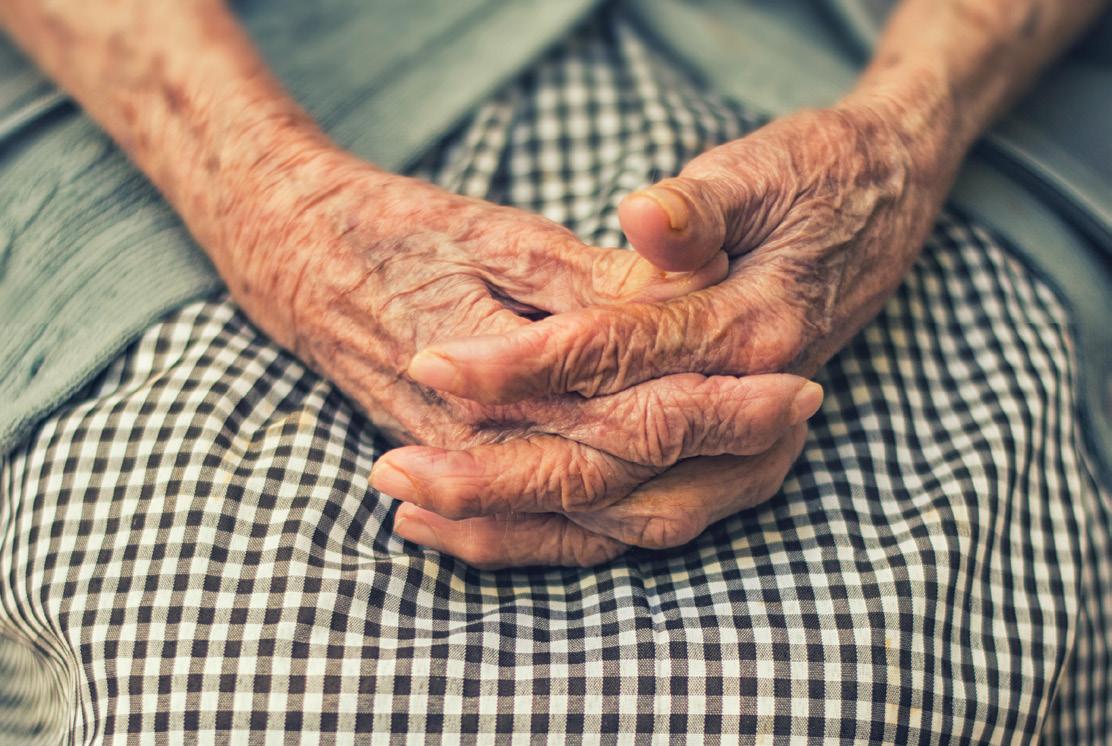FEATURE
WHY YOUNG PEOPLE SHOULD CARE ABOUT ALZHEIMER’S DISEASE BY MARY WATSON I am a high school student, a member of Girls Write Nashville, Loudmouth Community Music and a writer for the Youth Voice Column for The Contributor. You might wonder why a teen like me is writing an article about Alzheimer’s disease. Alzheimer’s is a degenerative brain disease that affects the memory, thinking and behavior of older people. I am writing for two reasons. First, I would like to find out, and let other young people know if there are things we can do while we are young to keep from getting the disease. Second, and more importantly, I am writing because Alzheimer’s is a disease that at some level affects almost every family. It has affected people in my own family. When I was 5 years old my great-grandmother took me to visit her favorite aunt in a nursing home. Her aunt had Alzheimer’s and what I remember the most about that visit is that no one
really knew what to say to her or how to act around her. To learn more about Alzheimer’s, I talked to a volunteer from the Alzheimer’s Association. (Read my Q&A with her below.) Her name is Amy LaGrant. She recently lost her father to the disease. I asked her if there is anything we can do in our young years to keep from getting the disease. I also asked her how a person should act when one of their loved ones is diagnosed with it. I asked LaGrant about early prevention. She said, “The likelihood of developing Alzheimer’s is influenced by many risk factors that we cannot change, such as age and family history.” However, she also said that there are some precautions that we can take while we are young — things like preventing head injuries and leading a healthy lifestyle can lower the risk of getting the disease later in life.
LaGrant offered this advice to young people who might have a grandparent suffering from the disease. She said, “Continue to just be their grandchild, love them, engage with them, share your life with them. While they may not be able to mentally or physically keep up, they still love you and want to be there, even if it is just sitting quiet holding your hand. Don’t be afraid to continue to love them as the people they are.” She also shared the best ways to treat and speak to people with the disease. Speak directly to them, don’t exclude them from conversations, give them time to express their thoughts, give them time to respond, don’t interrupt, laugh with them, and lastly don’t pull away. There are many ways people can join the fight against Alzheimer’s. The Alzheimer’s Association has several volunteer opportunities here in Nashville. They need educators and volunteer speakers to help educate communities. They also need
people to help enact legislation that serves those impacted by the disease. People can help by telling their stories to lawmakers. This is an exciting time in Alzheimer’s research. The Federal Drug Administration is expected to consider a new drug called Aducanumab. Hopefully, it will be approved soon. That being said, with the drug and with the help of organizations like the Alzheimer’s Association and the support of communities perhaps we can eventually eliminate Alzheimer’s. It is my hope that researchers discover a way to make the disease disappear. It is also my hope that the world becomes a healthy and happy place for people to grow old in. On Jan. 27, 2021 Mary Watson’s two times great aunt, Shirley Ann Couturier Wallace lost her battle with Alzheimer’s. She died in the home of her granddaughter in Springfield Oregon after suffering from the disease for many years.
The Youth Voice Column is a partnership between The Contributor and Girls Write Nashville. In Girls Write Nashville, as well as their gender neutral wing Loudmouth Community Music, students are guided through the process of writing and recording original songs. In this project, youth writers will offer essays, poems and insight to The Contributor’s regular roster of stories.
PAGE 8 | February 3-17, 2021 | The Contributor | NASHVILLE, TENNESSEE










